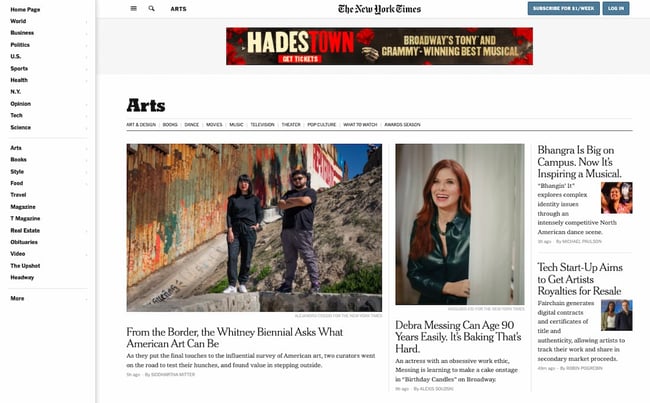6 Easy Facts About News Websites Explained
6 Easy Facts About News Websites Explained
Blog Article
More About News Websites
Table of ContentsThe Main Principles Of News Websites News Websites Things To Know Before You BuyThe Greatest Guide To News WebsitesGetting The News Websites To WorkThe Best Strategy To Use For News Websites
It was down in the UK and Brazil but up some other nations, such as Greece, Bulgaria, and Poland (News Websites). This year, for the initial time, we inquired about the different ways that individuals avoid the news and discovered that around half of avoiders (53%) were attempting to do so in a broad-brush or routine method for instance, by switching off the radio when the news began, or by scrolling past the information in social media sitesYou claimed that you try to actively prevent information.

I'm probably picking to read more light-hearted stories than I utilized to currently. M, 51, UK Turning my back on news is the only way I feel I can deal sometimes. I need to consciously make the effort to avert for my very own psychological wellness.
News Websites Can Be Fun For Anyone
Careful evasion of Ukraine news was highest in many of the countries closest to the problem, reinforcing findings from our added study in 2015, right after the war had actually begun. Our data may not recommend an absence of interest in Ukraine from close-by nations however instead a wish to take care of time or secure mental health and wellness from the very genuine scaries of war.
Contrasting Finland with a politically polarised country such as the USA (see following chart) that is much less affected by the battle, we find an extremely various pattern of topic avoidance. In the USA, we discover that consumers are most likely to prevent topics such as nationwide politics and social justice, where arguments over concerns such as gender, sexuality, and race have ended up being very politicised.
American politics are quite toxic these days. I discover sometimes that I have to separate from tales that just make me angry. F, 61, United States For some individuals, bitter and disruptive political arguments are a reason to shut off information completely, however, for some political partisans, avoidance is commonly concerning blocking out perspectives you don't intend to listen to.

Getting The News Websites To Work
Some are wanting to make news extra accessible for hard-to-reach groups, expanding the news program, commissioning even more motivating or positive information, or embracing constructive or services journalism that give individuals a sense of hope or individual company. In our survey this year, we asked participants regarding their rate of interest in these various techniques.
This clarifies why stories like Ukraine or national politics perform well with news regulars however can at the very same time turn much less interested customers away (News Websites). Selective avoiders are less curious about all types of news than non-avoiders yet in relative terms they do appear to be more curious about positive or solutions-based news

Excitement About News Websites
2023). This may be real in the minute, however over time it seems to be leaving several individuals empty and much less satisfied, which may be threatening our link with and count on the information. Throughout markets, overall count on news (40%) and count explanation on the resources people use themselves (46%) are down by a further 2 portion factors this year.
Certainly, via the rear-view mirror, the COVID-19 count on bump is plainly visible in the following graph, though the instructions of travel visit here later on has actually been mixed. In many cases (e.g. Finland), the trust fund increase has actually been maintained, while in others the upturn looks even more like a spot in a tale of continued long-lasting decrease.
Several of the highest possible reported degrees of media objection are located in nations with highest possible degrees of suspect, such as Greece, the Philippines, the USA, France, and the United Kingdom. The cheapest degrees of media objection frequent those with greater degrees of trust fund, such as Finland, Norway, Denmark, and Japan.
News Websites for Dummies
This year we asked participants concerning their preferences for text, sound and video when eating news online. Typically, we discover that the majority still favor to read the news (57%), as opposed to watch (30%) or listen to it (13%), yet younger people (under-35s) are more probable to pay attention (17%) than older teams.
Behind the standards we locate substantial and unusual country distinctions. In markets with a solid analysis tradition, such as go to my blog Finland and the UK, around eight in ten still prefer to read on the internet news, but in India and Thailand, around four in ten (40%) claim they like to view information online, and in the Philippines that proportion mores than fifty percent (52%).
Report this page